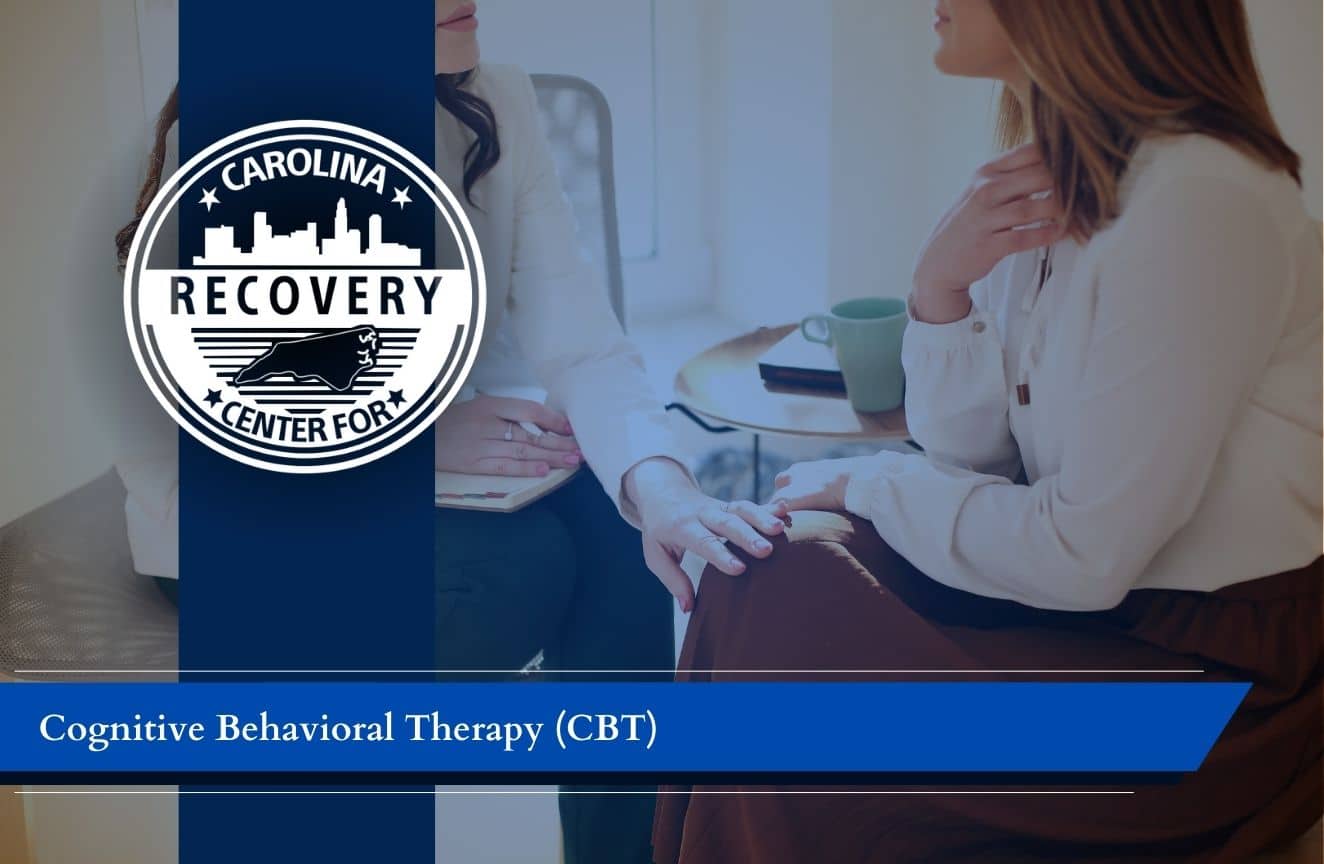


Addiction is a condition with deep roots in your health, behaviors, experiences, and more. Recovering from substance abuse and addiction requires comprehensive treatment.
Comprehensive treatment programs use evidence-based and holistic therapies. These therapies help people understand and address the roots of their substance abuse. Behavioral therapies are a critical part of a holistic treatment program.
Many addiction treatment programs utilize cognitive behavioral therapy (CBT). Cognitive behavioral therapy aims to help people identify and change destructive thoughts and behaviors. Participating in CBT in addiction treatment can lead to better outcomes and long-term recovery.
This article will outline cognitive behavioral therapy’s benefits during addiction treatment. You will learn what to expect from this type of therapy and where to find evidence-based addiction treatment.
Contact the Carolina Center for Recovery specialists now to learn more about our supportive treatment programs. Our intake specialists can help you explore the forms of therapy we offer. They will also verify your insurance and schedule an intake evaluation.
Cognitive behavioral therapy (CBT) is a form of talk therapy. This therapeutic approach can help people develop coping skills. People learn how to manage emotions and make critical changes that support long-term health.
Cognitive behavioral therapists have specialized education and training to provide this therapeutic intervention. CBT is effective for a wide range of conditions, including:
One of the most important goals of CBT treatment is to help people recognize destructive thoughts and patterns.
During therapy sessions, clients work with their therapist to identify harmful beliefs, thoughts, and ideas. They explore how these may lead to destructive behaviors. Then, the therapist helps the client develop better problem-solving and coping skills to reduce harmful behaviors.
Clients may work one-on-one with their therapist. A therapist may also use CBT techniques during group therapy sessions.
No two people have the same needs or goals during the therapeutic process. Therapists work with each client to identify needs and goals. Then, they develop a plan to address each client’s needs.
However, cognitive behavioral therapy has some core goals. These include:
Clients develop strategies to manage long-term challenges and short-term stress throughout the therapeutic process. People may learn how to calm their bodies and minds. They may learn practical ways to reduce stress.
Cognitive behavioral therapy skills allow people to be curious about their fears and anxiety. Instead of ignoring or running away from their worries, they examine it.
Understanding anxiety can reduce its impact on your behaviors. Participating in CBT can help people feel in control of their thoughts and behaviors. This can have a profound effect on their functioning and emotional well-being.
Cognitive behavioral therapy aims to change future behaviors instead of examining the past. Instead of thinking about past behaviors, it helps people focus on improving future ones.
CBT is a goal-oriented form of therapy. The principles of cognitive behavioral therapy are:
Learned patterns of destructive behavior can worsen mental health conditions
Inaccurate thoughts can contribute to mental health conditions
Developing better coping skills can help people with mental health conditions improve their functioning and feel better
Clients work with a trained, trusted therapist during cognitive behavioral therapy sessions. Sessions may last around an hour. People may spend the first several sessions building rapport with the therapist and setting goals.
Then, clients work to identify the thoughts, patterns, and beliefs that contribute to substance abuse or mental health conditions. They work with the therapist to learn new, healthier coping skills.
Using CBT can lead to lower stress levels and better overall functioning. Instead of reacting from an emotional place, people learn how to think about their behaviors and control their reactions.
Many people participate in CBT during mental health treatment or during recovery from substance abuse. People may use this form of therapy during treatment or as part of an aftercare plan.
During an addiction treatment program, you will participate in evidence-based and holistic therapies. These therapies will help you identify and overcome the physical, emotional, and behavioral components of substance abuse.
Cognitive behavioral therapy (CBT) may play a critical role in your recovery. It may be part of your treatment plan in addition to medications, education, and other therapies.
CBT helps people to make practical, realistic changes that can improve their health in recovery. Some of the benefits of using CBT in recovery include:
These changes can improve your likelihood of avoiding relapse in the long term.
If you or someone you love struggles with substance abuse or addiction, you are not alone. Reach out to the Carolina Center for Recovery specialists to learn about our treatment programs.